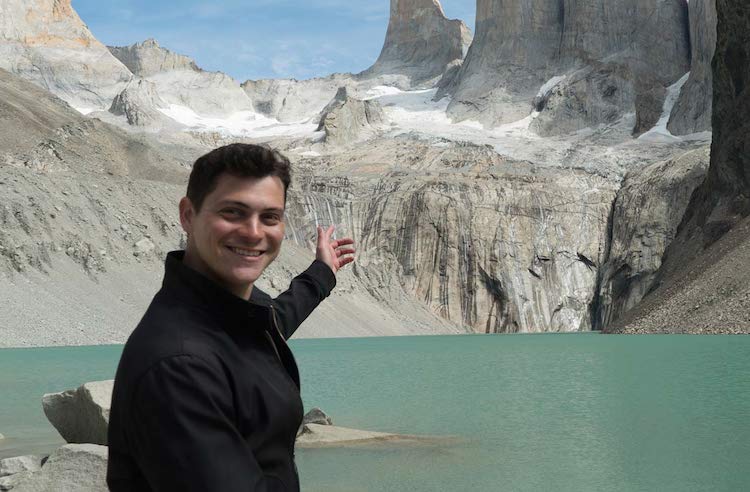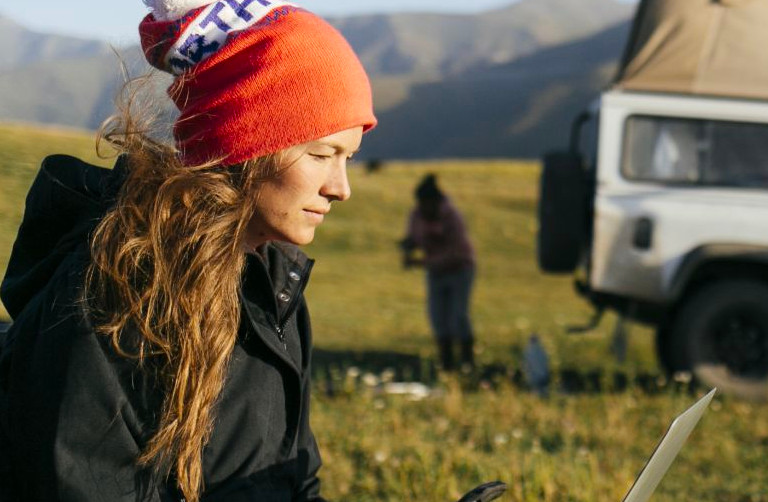You love traveling. Your love telling stories about your travels. So, why not tell the world with your own podcast?
Shares
 Photo © Getty Images / Visualspace
Photo © Getty Images / Visualspace
- Who is your audience?
- What's your format?
- Recording your podcast
- Editing your podcast
- Where to host your podcast
- Promoting and monetizing your podcast
The boom in podcasting has opened a whole new world for people to share their passion for travel and to share their tales from the road. And it’s not as difficult or as expensive as you may think.
So, what's your angle? What are you passionate about?
Maybe you love a good curry. Maybe you’re into diving. Maybe you’re an expert on every kind of auto-rickshaw used around the world.
Whatever your passion is, own it. You’ll need a memorable name for your podcast. Keep it short, punchy and relevant. And check that no one else is already using it.
Who is your audience?
Who is going to be interested in listening to your podcast and why? I present a podcast called No Shitting in the Toilet that celebrates travel in all its tarnished glory. I produce another one for the Antigua & Barbuda Tourist Board. People planning a once-in-lifetime trip to the Caribbean don’t want to hear about madcap adventures where buses break down and toilets don’t work, but the listeners of NSITT do. Give your audience the information, stories and guests that they want to hear. When it’s a subject you’re passionate about, they are probably the same things you’d be interested in if you were a listener.
What's your format?
Will you be presenting the podcast on your own or will you have a co-presenter? Will you interview a special guest each episode or will you have several segments? There is no right or wrong answer. You simply need to figure out what works best for your topic and what you have the time and resources to do. Keep in mind that a variety of voices will make your podcast more engaging.
I have a segment on my podcast where I read out listener emails. In the first episode, I did it solo and it was a bit flat. Now I use a guest to help me read them out – often one of the listeners who’ve sent a story in – and it not only sounds better, but it is also a springboard for more stories, more banter and more laughs. Your podcast can be as long or short as you want, but you should aim to keep it snappy enough so your listeners don’t lose interest. Better to keep ‘em wanting more rather than switching off with boredom.
Whether you publish your podcast daily, weekly or even monthly, make sure to keep it regular. Leave it too long and your listeners may lose interest. Personally, I like podcasts where the presenters are friendly and personable. So, my advice is to jot down some bullet points of what you want to say and just go with the flow. The beauty of a podcast is that it is all pre-recorded. If you fluff a line, just do it again. Or simply fix it in the edit. However, if you’re interviewing guests, research first and have a list of questions. It will lead to a more relaxed and engaging interview.
Recording your podcast
To record a podcast, you need three basic items: a mic, headphones and a recording app. Chances are you’ve got everything you need right there on your smartphone. Just open the voice memo app, plug in the headphone/mic that came with your phone and you’re good to go.
Of course, the better your equipment, the better you’ll sound. I’d advise investing in a decent USB podcasting microphone. Check out the various buyers' guides online and choose the best mic for your needs and your budget. If you want to record in the field, you’ll need a portable recorder. Anything by Zoom will do, but there are guides on YouTube to the best of these as well. For recording guests ‘down the line’ you can use a conferencing program, such as Zoom, Microsoft Teams or Skype, which allows you to record your interviews. As you get more proficient you might want to look at services such as Zencaster and Riverside that record each person in higher quality and as a separate track which is a great help when editing.
Always make sure your guests wear headphones. If they don’t, your recording will be blighted by feedback that will make it unusable.
Editing your podcast
Even with the simplest of podcasts, you’ll want to trim your interviews, add intros and outros and mix in music. The good news is that the two best options for doing this are completely free. Audacity, which works on any platform. And GarageBand, which comes free with every Mac.
Both programs work the same way. You import each element of your podcast as a separate track and then cut, trim and move them around to create a single audio file to upload to your host. You can also adjust levels and apply filters to make your voice sound more professional. They can seem a little overwhelming at first but there are plenty of great ‘How to’ videos on YouTube to take you through every step of the way. Just search ‘How to edit a podcast in Audacity/GarageBand' to get started.
If there’s one thing that will immediately elevate your podcast it’s music. It sets the tone, captures a mood, and immediately adds a sheen of professionalism. It is also the quickest way to get yourself into trouble. Music publishers will subpoena you before you can hum the chorus to Ed Sheeran's Galway Girl. YouTube has an audio library of free music and sound effects. Other services like Premium Beat and Artlist offer royalty-free music for a small fee.
Where to host your podcast
Podcasts need to be hosted somewhere, and there are many companies offering their services. Prices range from as little as $US5 a month, depending on the amount of storage you need and the services you want. Most companies offer a hassle-free listing of your podcast on all the major streaming platforms such as Spotify, Google and Apple. But, if you want detailed statistics, which is vital for monetizing your podcast, or a dedicated webpage, which is useful for listing your episode notes, you’ll pay more. Choose a hosting plan that suits both your needs and your budget and gives you the option to upgrade as your podcast grows.
Eye-catching cover art is essential. Look at the cover art of your favorite podcasts for inspiration, then brief a designer at sites such as Fiverr and Upwork. Prices are surprisingly reasonable and the results are much more professional than you’d be able to produce yourself.
Promoting and monetizing your podcast
As soon as you’ve decided on a name for your podcast, set up accounts on all the major social media platforms to help promote it. Promotion can be simple as a post saying ‘Hey, the new episode is now live’. Or you could post an audio excerpt from the episode to whet listeners' appetites. Some podcast hosts give you the tools to create these excerpts as part of your package. And there are plenty of YouTube tutorials on how to do it, too. Networking with other podcasters is another great way to raise your profile. Get in touch with similar podcasters and offer yourself as a guest. Or better, still, have them as a guest on your podcast. Chances are they’ll spread the word on their social platforms, especially if you make it easy for them by providing cover art, audio excerpts and so on for them to post.
Contact any publication – online or real-world – that publishes ‘Best podcast’ lists or focuses on subjects similar to yours and let them know about your podcast so they can in turn let their readers know. Realistically, unless your podcast is hugely successful, the options to make money from your podcast are limited. Sponsorship is probably your best bet, especially if your topic is specialized. Even a small listenership is valuable if it is exactly the right kind of customer businesses are looking for. You probably won’t make much money at first – maybe just enough to cover your costs – but as your audience grows, so too will the opportunity to finance your travels through podcasting.
Related articles
Simple and flexible travel insurance
You can buy at home or while traveling, and claim online from anywhere in the world. With 150+ adventure activities covered and 24/7 emergency assistance.
Get a quote

No Comments